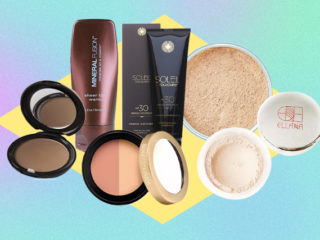
Parenthood isn’t rocket science… we dare say it’s harder. New parents, especially, can understandably find the role daunting. While there are lots of available information out there, particularly about the crucial infancy stage, sometimes, it’s difficult to know which ones are true and which ones are just based on theory. We know moms and dads are curious about the best way to make sure their child develops cognitively, emotionally, and socially during this stage. So to help them, we talked to Dr. Joselyn C. Alonzo-Eusebio, MD, a pedia that is currently an associate professor in the College of Medicine for UERMMMC. Her studies are focused on child development and has attended and participated in conferences around the world about it. She is also a trusted speaker that has spoken in conventions and forums across the country. She is also a member in the Philippine Medical Association, Association for Research on Infant and Child Development (UK), World Autism Organization and World Federation of ADHD.
Read on to know more about how you can help your baby’s brain and emotional development, according to Dr. Eusebio.
What do you think are the biggest misconceptions parents have when it comes to ways they can help their baby’s cognitive performance?
Some of the common misconceptions of parents on ways to enhance the cognitive development of children are: a) That there are vitamin supplements that the child should take to maximize their cognitive abilities, and b) That stimulation to optimize the child’s cognitive potential can be given at a later age, when they’re ready to learn.
Parents need to know that environmental factors, which include adequate/appropriate nutrition and stimulation are crucial to optimizing a baby’s cognitive performance. During the first year of life, breastmilk is the gold standard for infant nutrition. Proper nutrition and stimulation should be given during the critical and sensitive periods of brain development, which occur during the prenatal period and up to the first three to five years of life.
Research shows that within the first three years of life, there is rapid development of most of the brain’s neural pathways which supports critical functions and processes involving communication, understanding, social development, and emotional well-being. In fact, the first twelve months of a baby’s life are where sensory advancements are quickly developing. The sense of sight, smell, hearing, touch and taste all develop faster in this time compared to any time thereafter. The sense of touch is one of the senses that is fully developed at this time making it a vital part of a baby’s first few moments of life.

Can you give us specific tips parents can apply to strengthen emotional bonds with their baby?
There are several ways to spend time with your baby to foster and strengthen your connection, such as skin-to-skin contact, breastfeeding your baby, and performing a baby massage.
Baby massage can help ease transitions. It provides many emotional and physical benefits for your growing baby. [It is also] a nice way to monitor the healthiness of your baby’s skin. It gives you an opportunity to go over the entire surface and to check for dryness or chafing.
Research [also] suggests that our ability to love, trust, and resolve conflict stems from how children were treated as infants. Psychological science research does suggest that attentive parents may buffer children against chronic stress, digestive problems, and depression.
Can you explain to us how multi-sensorial stimulation affects the baby’s development?
Multisensorial stimulation, which involves all the different senses, including vision, hearing, taste, smell, and touch paves way for the baby’s development of language, socio-emotional skills, motor and higher cognitive function.
The transformative power of a touch from the baby’s parents and caregivers does not only comfort or calm them but also helps them in promoting socio-emotional bonding and attachment. Within the sensory scaffold, touch is the first to develop. Touch develops in utero at around four to seven weeks. At birth, the sense of touch is the most finely tuned of all the senses. The benefits of touch in promoting the holistic development of a baby extends beyond childhood.
As parents touch and interact with their babies, there are specific behaviors that can lead to positive reactions and benefits. The evidence-based benefits of touch may include physical, emotional, behavioral, and social development.

[Additionally,] smell is the sense most directly linked to memory. Memories are more emotional when triggered by smell than by other senses. Scented baby skincare products may not necessarily be applicable to all babies, but research [and] reports from parents [show] that baby skincare products that have a purposeful fragrance are highly beneficial. Scent is more closely linked to the part of the brain that elicits emotion than the other senses.
How crucial is it for parents to bond with their babies? How will this affect their child later on in their lives?
Infancy is a key time for a child’s brain development. It is of utmost importance that a strong initial bond is established between the baby and their caregiver for them to grow up as a happy, independent, and resilient adult. Studies have shown that parental inconsistencies can lead to long-term mental health problems as well as reduced overall potential and happiness in the future.
For newborns, their first year of life is about their development which is through continual experiences of bonding and security. The transformative power of a touch from moms and dads not only comforts or calms the baby but also builds emotional connections.
Research shows that touch can activate different areas of the brain that are crucial for a baby’s development. Touch is the sensory scaffold, or a foundation contributing to the development and maturation of the other senses, as well as how babies’ sense and perceive their own bodies.

To working parents, or those who might not have the luxury to spend a lot of time with their babies, how would you suggest they still ensure their baby’s emotional and cognitive growth?
The quality of time spent with your baby is what matters most; more than the length of time. Newborn babies are very much dependent on their parents as they undergo massive social, emotional, and cognitive developments in the first three years of life. A lot of times, these depend so much on the loving bond or attachment that is developed with their parents or caregivers.
There is evidence based on research that parental inconsistency can lead to long-term mental health problems as well as reduced overall potential and happiness. For newborns, their first year of life is about their development which is through continual experiences of bonding and security.
Dr. Eusebio suggests that parents or guardians use the gentlest products for their babies. Among the most trusted brands is Johnson’s, which promises “unmatched baby and skincare research and knowledge.” To make parents feel more confident that they are choosing the right product for their child, the brand “reformulated and expanded their product line to suit the unique needs of children at every life stage (newborns, infants, active babies, and kids).”
***
The interview has been edited and condensed for online publishing.
Photo courtesy of Unsplash
For the latest in culture, fashion, beauty, and celebrities, subscribe to our weekly newsletter here
Follow Preen on Facebook, Instagram, Twitter, YouTube, and Viber
Related stories:
Why I choose E.Q. over I.Q. when raising my child
The discipline of motherhood
Strengthening family relationships in the era of social media
Preen Gift Guide: Local finds for your little tots


